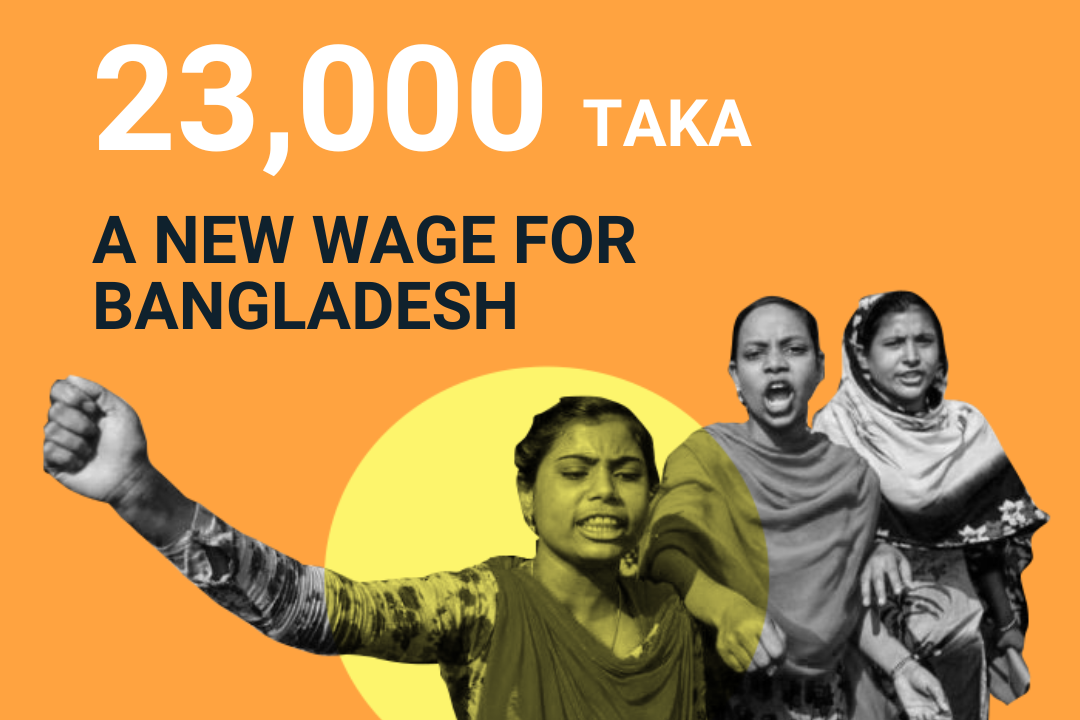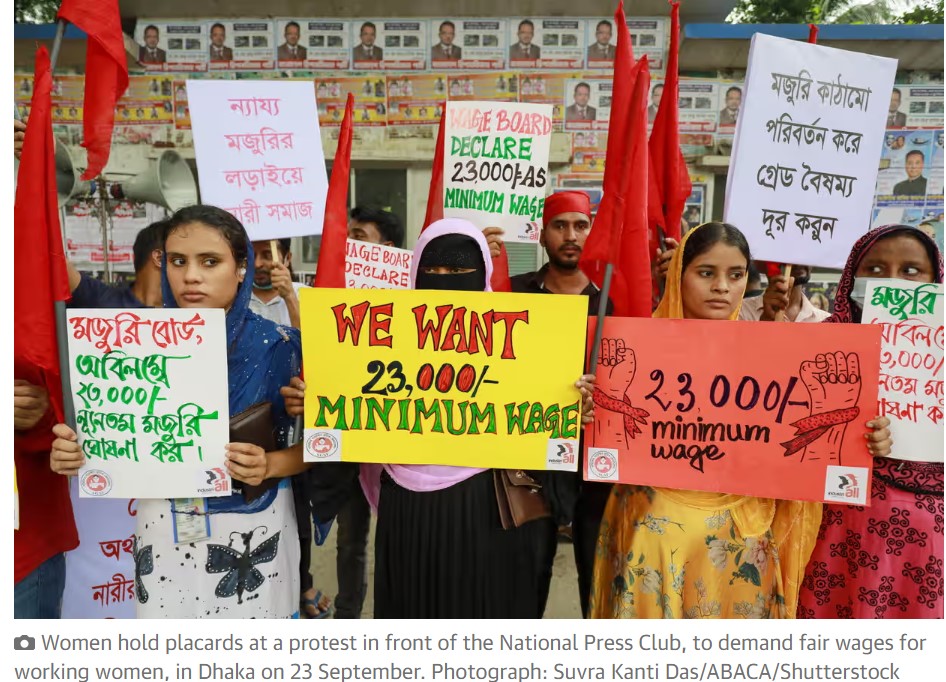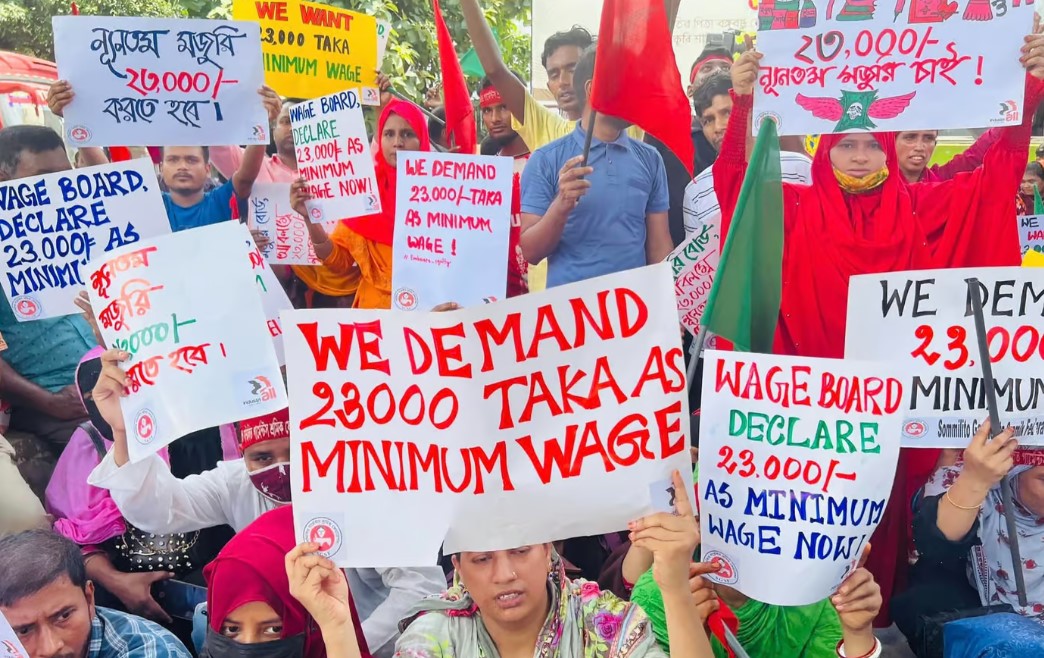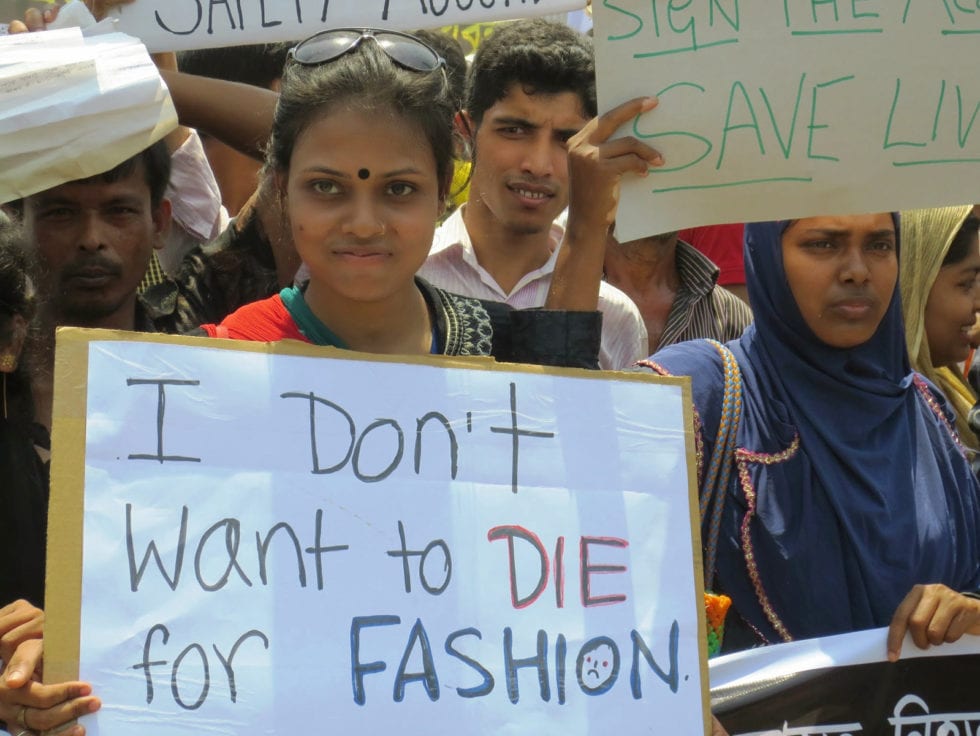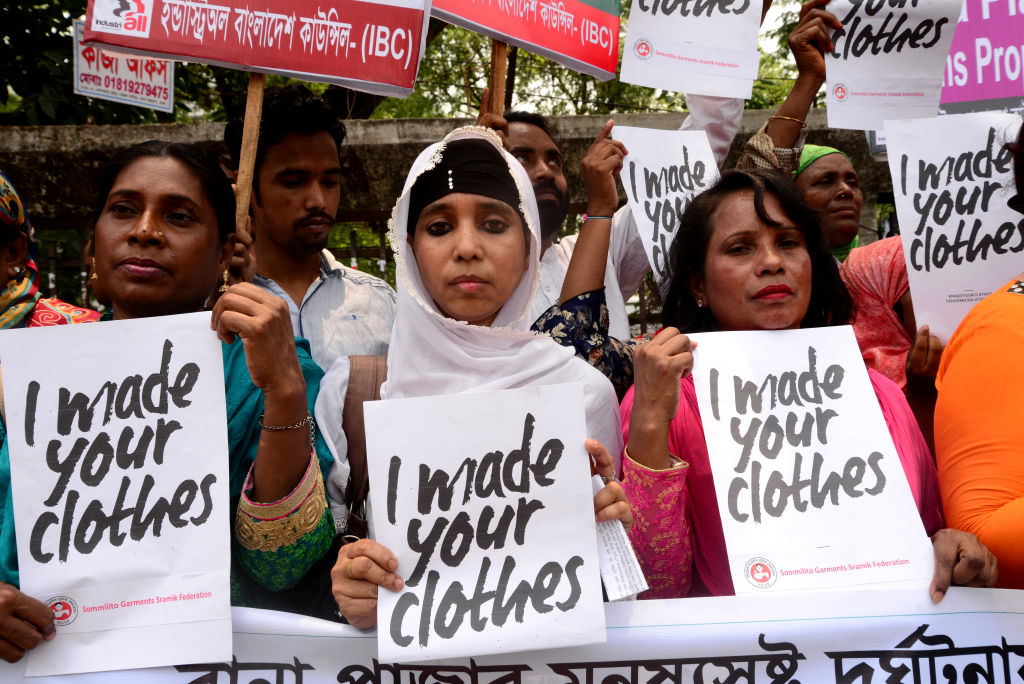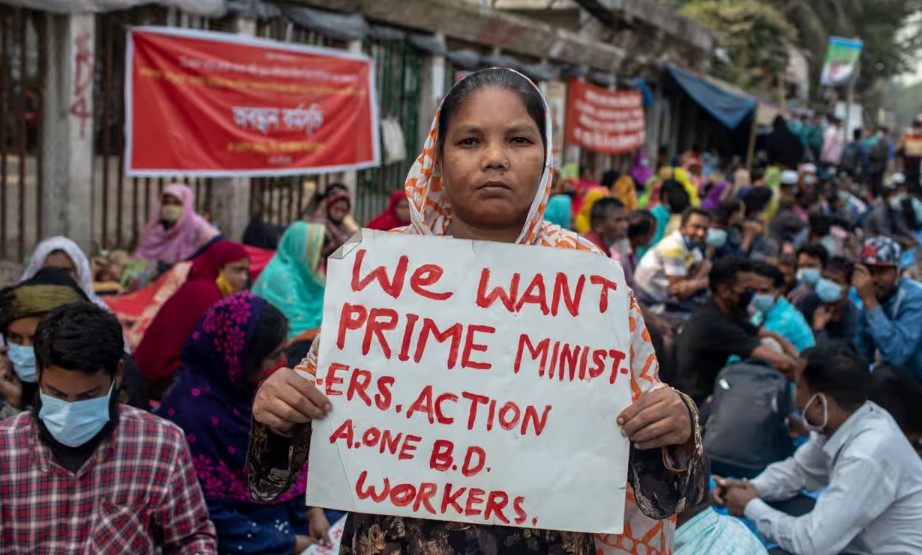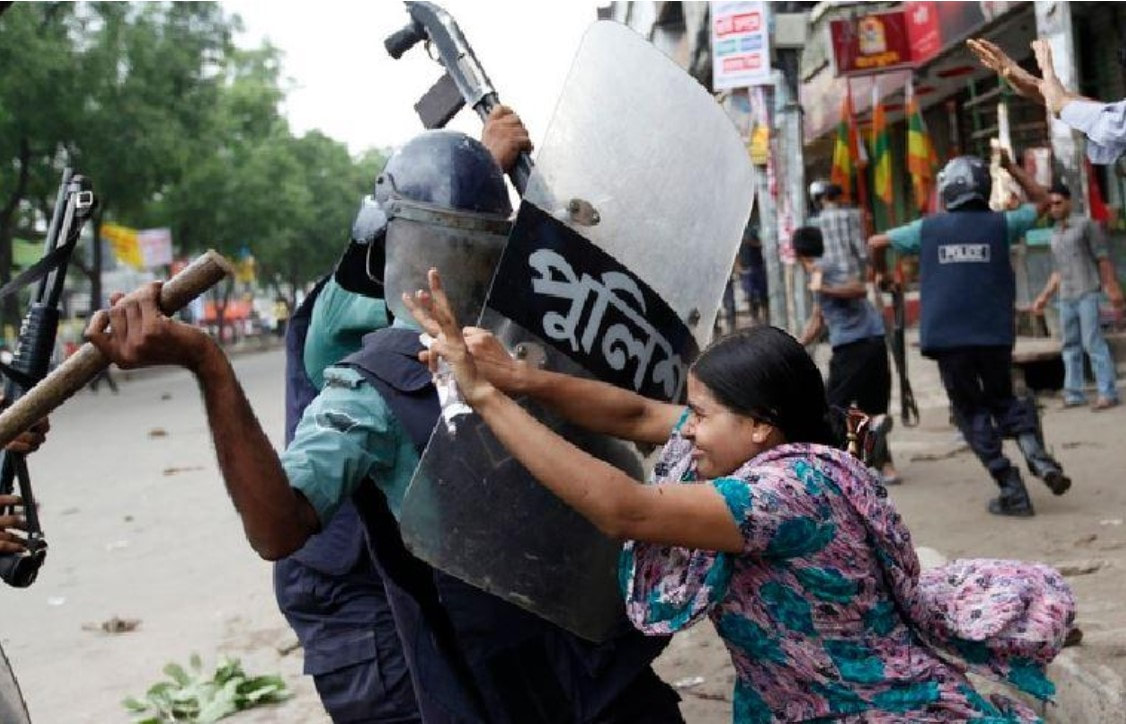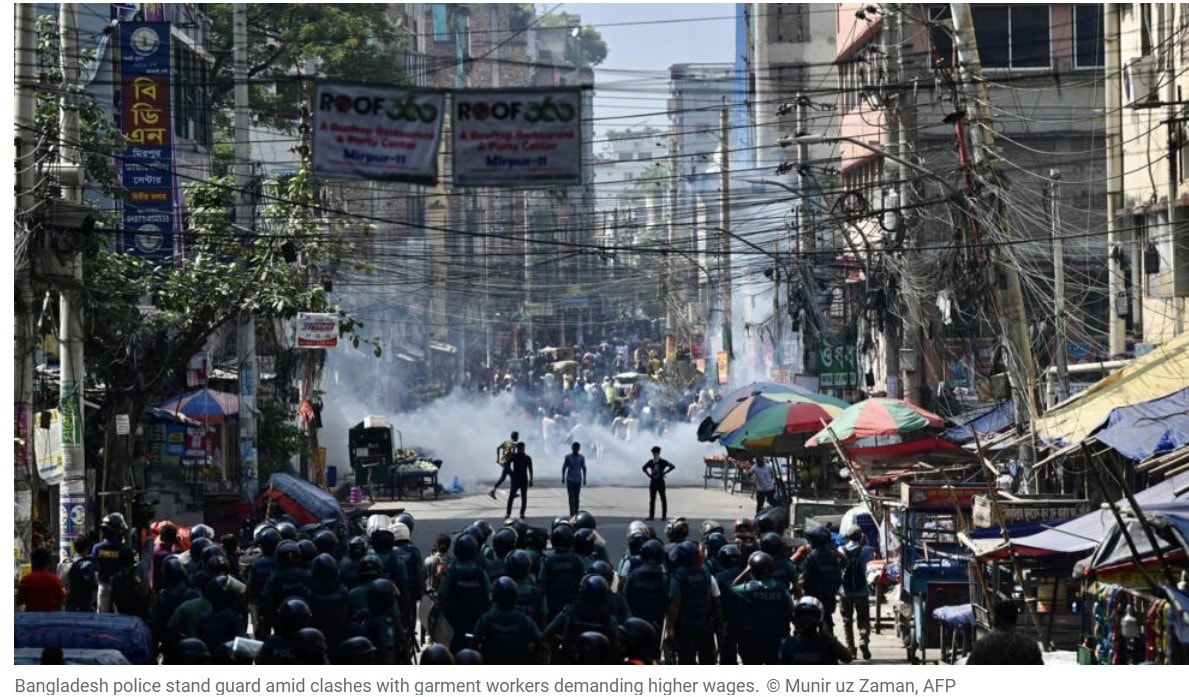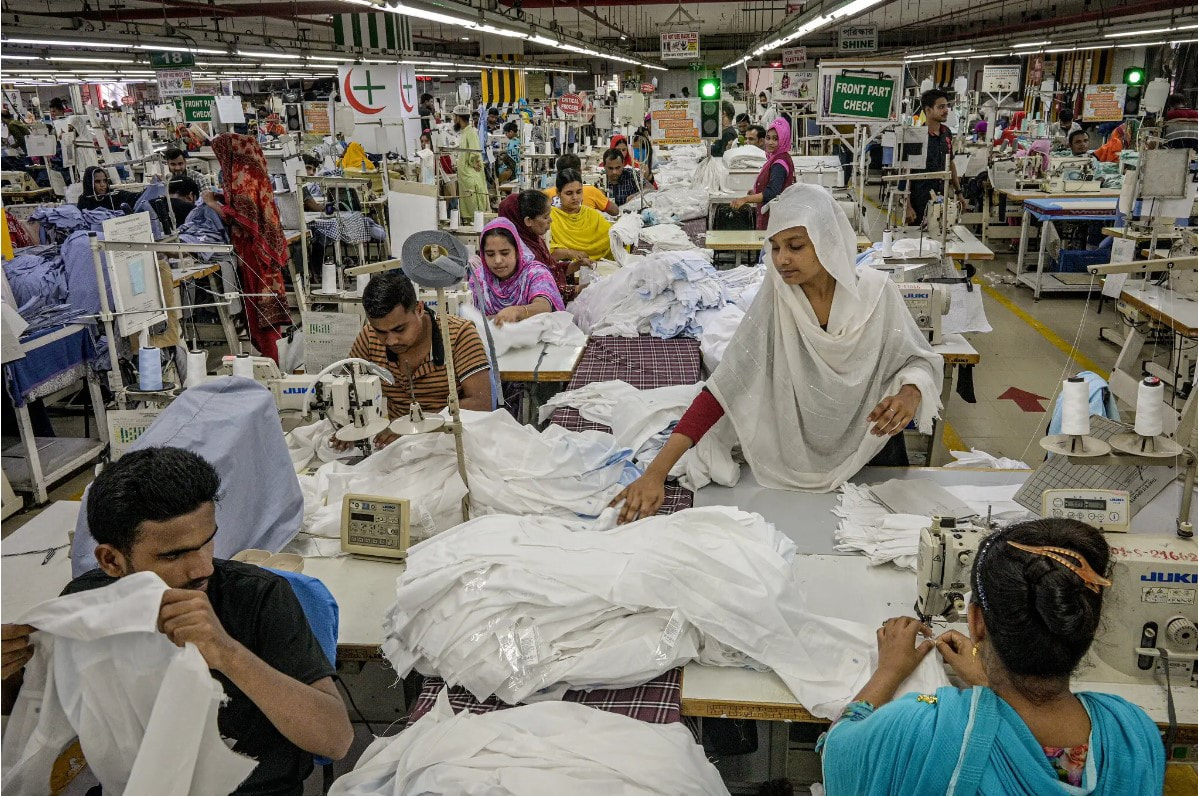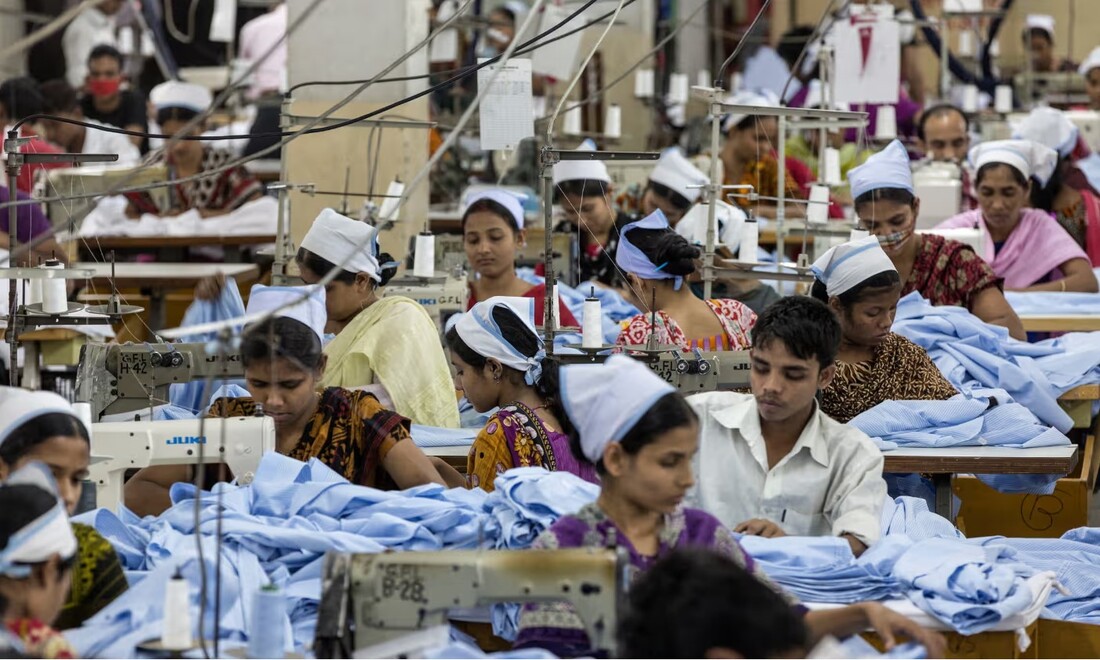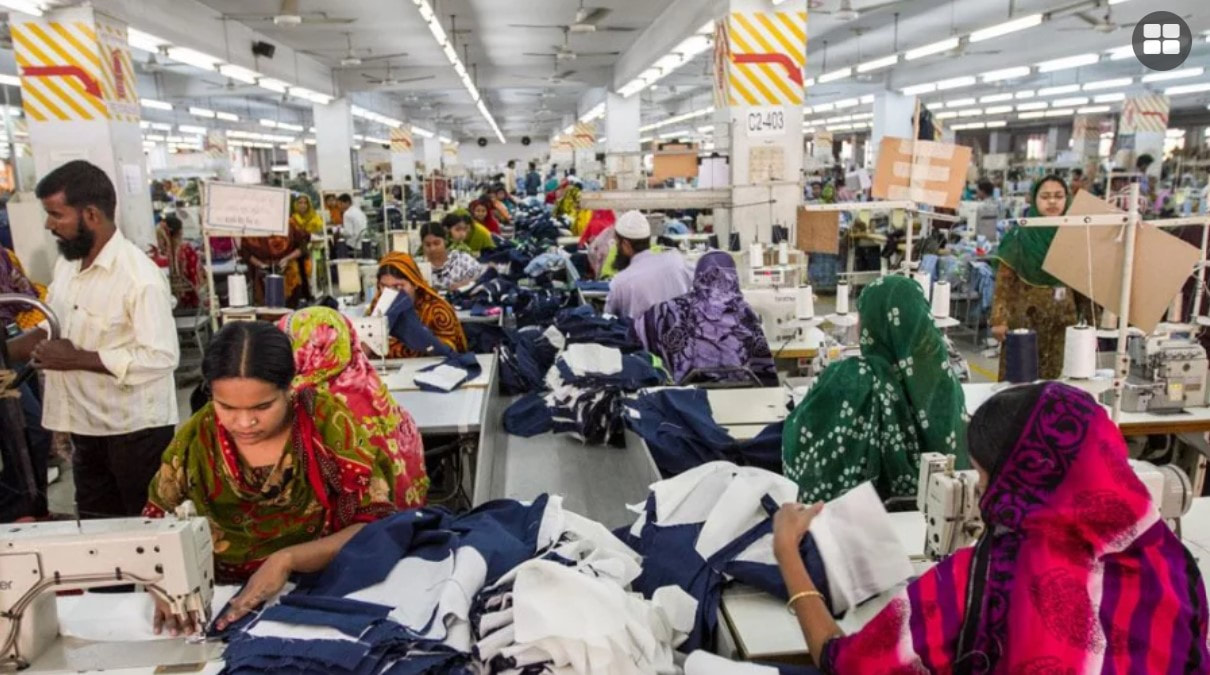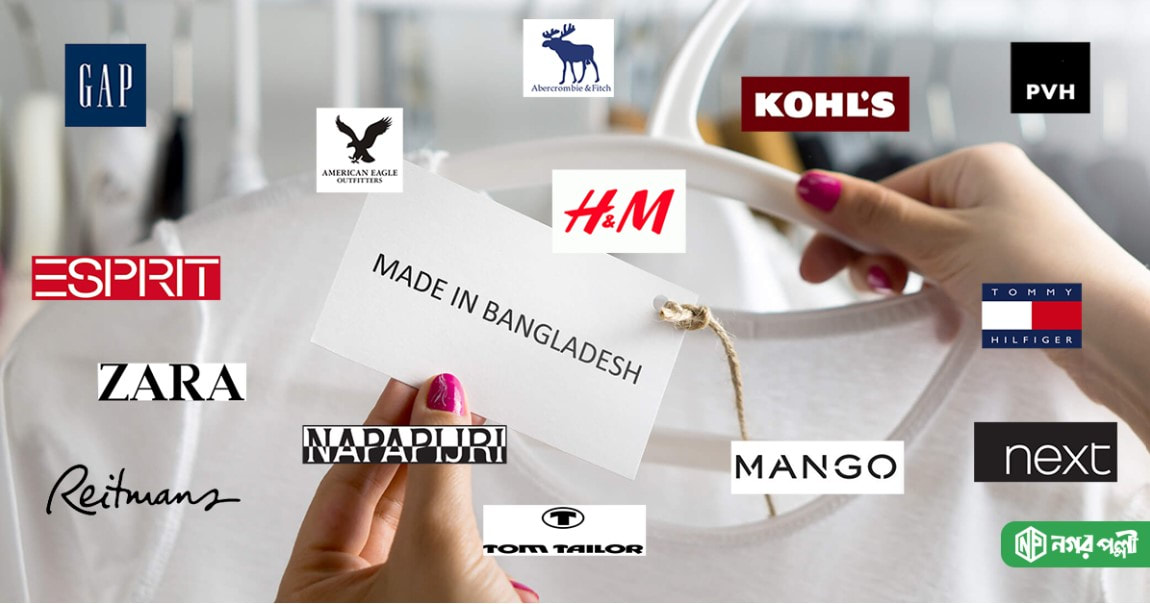12.11.2023
Bangladesh's Workers For Fast Fashion Brands Fear Starvation As They Fight For Higher Wages
With USD72 monthly wages , garment workers making clothes in Bangladesh for global high-street brands say they are facing starvation and are having to steal and scavenge food from fields and bins to feed their children, as protests continue over a new minimum wage for the garment workforce of 4 million people. Despite being second largest supplier of clothing to fast fashion brands, Bangladesh has one of the lowest minimum wages for garment workers in the world, which has remained set at 8,000 taka (USD72) since 2018. Over the past week, tens of thousands of workers have taken to the streets in increasingly violent protests that, according to unions and news reports. Many fashion brands, which source clothes from Bangladesh, say they support workers’ calls for a higher minimum wage. However, labour rights groups argue that, despite many brands coming out in support of workers’ demands for higher pay, it would require the brands to agree to pay more for their clothing orders for this to become a reality. Many brands vaguely come out in support of workers, but aside from one exception, not one of these companies have said they support the union’s call for a living wage of just USD210 or 23,000 taka a month or adjust their own prices to enable it. Bangladeshi garment manufacturers on Saturday shuttered 150 factories "indefinitely", as police issued blanket charges for 11,000 workers in connection with violent protests demanding a higher minimum wage, officers said. Credit: Brut.
Poverty deprives people of adequate education, health care and of life's most basic necessities- safe living conditions (including clean air and clean drinking water) and an adequate food supply. The developed (industrialized) countries today account for roughly 20 percent of the world's population but control about 80 percent of the world's wealth.
Poverty and pollution seem to operate in a vicious cycle that, so far, has been hard to break. Even in the developed nations, the gap between the rich and the poor is evident in their respective social and environmental conditions.
Poverty and pollution seem to operate in a vicious cycle that, so far, has been hard to break. Even in the developed nations, the gap between the rich and the poor is evident in their respective social and environmental conditions.
